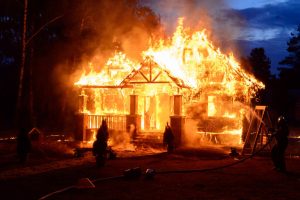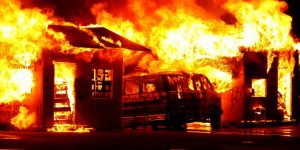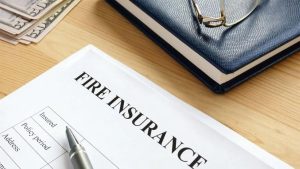Fire can be devastating. It destroys property, disrupts livelihoods, and leaves emotional and financial scars. But here’s the good news—fire insurance can help mitigate the financial blow if the unthinkable happens.
If you’re wondering what fire insurance is, how to select the right policy, or how it factors into safeguarding your property, you’ve come to the right place. This guide covers everything you need to know about fire insurance, from understanding policies to filing claims and even preventing fire damage.
What Is Fire Insurance?
Fire insurance is a type of property insurance that provides coverage against losses or damages caused by fire. Whether it’s a house, a commercial office, or valuable personal belongings, fire insurance ensures financial protection, helping you recover and rebuild.
It typically covers the physical structure of the property, furniture, fixtures, machinery, and even stock or inventory, depending on the policy. Some extended plans also guard against fire-related risks, such as explosions, lightning, and damage caused by smoke or water used to extinguish the fire.
Understanding the Basics of Fire Insurance Policies
Before purchasing a fire insurance policy, it’s essential to understand some key components of these policies. Here’s a breakdown of what most fire insurance policies cover and exclude.
What Fire Insurance Usually Covers
- Property damage: Includes buildings, homes, and certain personal belongings.
- Additional expenses: Covers costs like temporary housing if your home is uninhabitable due to fire.
- Extensions to other risks: Some policies can extend to cover risks like explosions, riots, or natural disasters causing fire.
Common Exclusions
- Negligence: Damage caused by intentional harm or gross negligence might not be covered.
- War or nuclear risks: Damages arising from war, nuclear incidents, or similar large-scale events are not included.
- Electrical damage: Some policies exclude damage caused by electrical malfunctions unless explicitly stated otherwise.
Compulsory Tip
Always read the fine print and ask your insurer about clauses and exclusions before committing to a policy.
Factors Affecting Fire Insurance Premiums
How much you pay for fire insurance—your premium—depends on a variety of factors. Here’s what determines the cost of your coverage.
- Property Value
The higher your property’s value, the higher your premium will be. Insurers use this to estimate the cost of repairing or rebuilding your property in case of fire damage.
- Location
Properties in areas with higher fire risks (e.g., wildfire-prone regions or areas with few fire stations) generally incur higher premiums.
- Type of Property Use
Residential, commercial, or industrial use impacts the premium. For example, factories with flammable materials often have higher premiums compared to residential homes.
- Safety Measures
Properties equipped with fire alarms, sprinkler systems, or fire-resistant materials often benefit from lower premiums. Investing in safety measures can save you money in the long term.
- Coverage Type
Additional features like coverage for third-party liabilities or loss of rent can increase your premium.
How to Choose the Right Fire Insurance Coverage
Purchasing fire insurance is not a one-size-fits-all decision. Here are steps to ensure you’re choosing the right coverage for your specific needs.
- Assess Your Requirements
Evaluate the value of your property and belongings to estimate how much coverage you need.
- Compare Policies
Compare several insurers. Look at their premiums, coverage limits, and customer reviews to narrow down your options.
- Understand Add-Ons
Ask your insurer about add-ons for extended coverage like natural disaster protection and decide if they’re worth the additional cost.
- Check Claim Settlement Ratios
Opt for insurers with a high claim-settlement ratio to ensure smoother processing should a claim arise.
- Read the Fine Print
Always review the policy document for exclusions, conditions, and limits to avoid unpleasant surprises later.
Filing a Fire Insurance Claim: A Step-by-Step Guide
If you’re unfortunate enough to require a claim, the process can feel daunting. Here’s a simplified guide to help you through it.
- Notify Your Insurer Immediately
Contact your insurance company as soon as the fire occurs. Delays in informing them may weaken your claim.
- Gather Evidence
Take photos or videos of the damage before making repairs. These act as proof during the claim assessment.
- File an FIR (if Necessary)
For major incidents, file a First Information Report (FIR) with local authorities and share the details with your insurer.
- Submit Necessary Documents
This may include your policy document, claim form, evidence of damage, and bank account details. Work closely with the insurer to ensure nothing is missing.
- Surveyor Evaluation
Your insurer will send a surveyor to evaluate the extent of the damage. Be transparent and cooperative during this assessment.
- Approval and Settlement
Once approved, your insurer will process the claim and settle the payment.
Tips for Preventing Fires and Minimizing Risks
While insurance can cushion the financial blow, preventing fires is always the best course of action. Here are top tips to minimize fire risks.
- Install Safety Equipment
Equip your property with fire alarms, smoke detectors, and fire extinguishers.
- Ensure Electrical Safety
Regularly inspect electrical wiring for faults and avoid overloading circuits.
- Practice Safe Cooking
Never leave cooking food unattended, and always keep a fire blanket or extinguisher in your kitchen.
- Manage Flammable Materials
Store flammable liquids securely and keep them away from heat sources.
- Create a Safety Plan
Have an evacuation plan in place. Make sure all household members or employees know what to do in case of an emergency.
Frequently Asked Questions (FAQs) About Fire Insurance
Are fire insurance premiums tax-deductible?
Yes, businesses can claim fire insurance premiums as a deduction for tax purposes.
Can I purchase fire insurance online?
Yes, many insurers allow you to purchase and renew fire insurance policies online.
What happens if I under-insure my property?
Under-insuring could lead to a proportionate reduction in your claim amount, leaving you financially exposed.
Securing Your Property with Fire Insurance
Fire insurance is more than just a policy—it’s peace of mind. Whether it’s securing your home, safeguarding your business, or protecting prized possessions, fire insurance plays a critical role in mitigating potential losses.
If you’re still unsure about the right plan for you, consult with an insurance professional. Take control today and make fire insurance a key part of your risk management strategy.





Comments
Very good